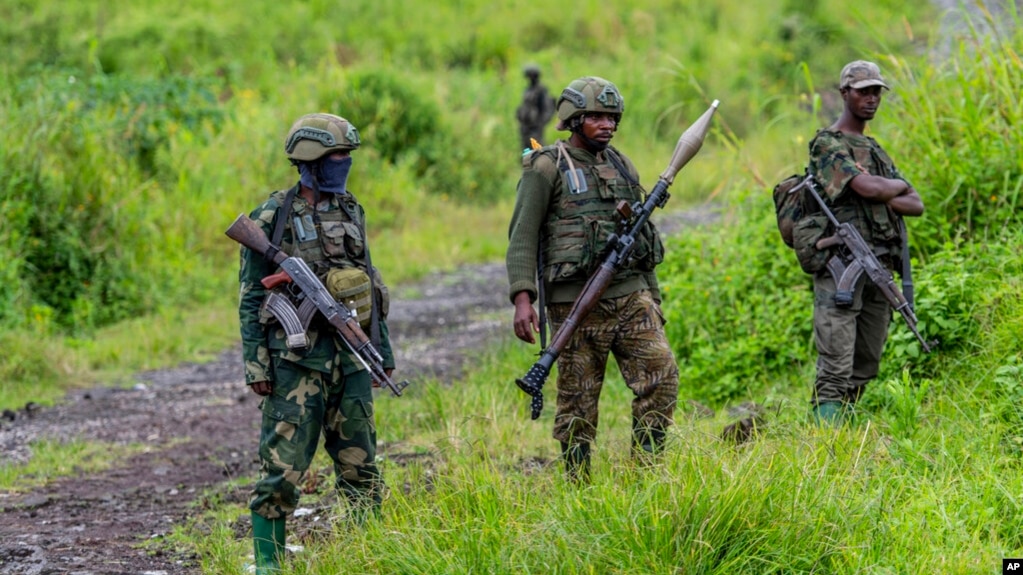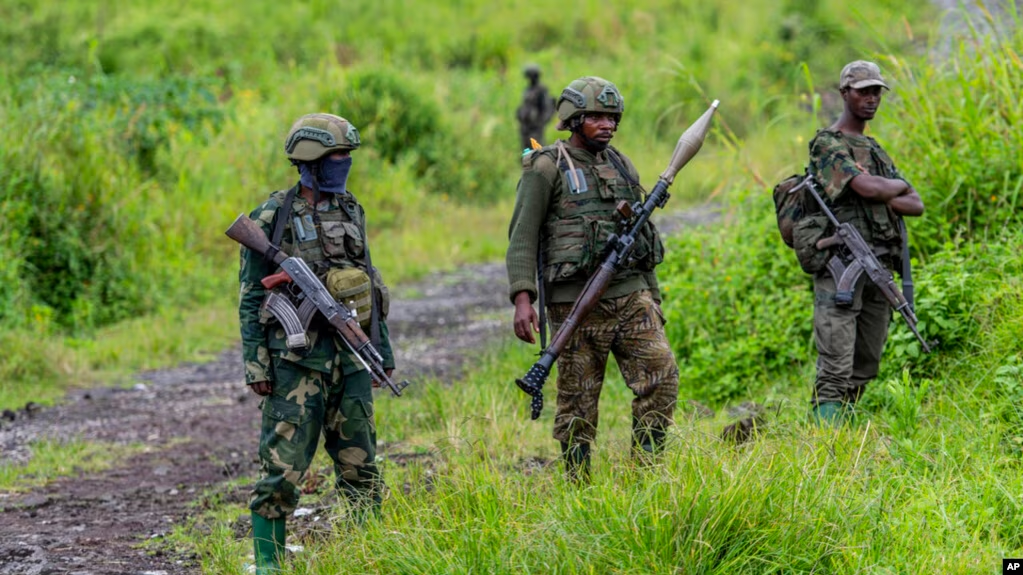
A Congolese prosecutor Monday requested death sentences against 25 defendants accused of belonging to the M23 rebel group in a high-profile trial in Kinshasa.
The prosecution called for a 20-year jail term against a 26th defendant.
The Tutsi-led M23, backed by Rwanda, has seized huge swathes of territory in the eastern Democratic Republic of Congo since late 2021.
Only five of the accused are present for the trial in a military court, with the rest being tried in absentia. They face charges of war crimes, participation in an insurrection and treason.
The most prominent is Corneille Nangaa, a former president of the Congolese electoral commission. In December, he announced in Nairobi the creation of the Alliance Fleuve Congo (AFC), a political-military movement of rebel groups including the M23.
Other major M23 figures are on trial including its President Bertrand Bisimwa, military chief Sultani Makenga, and spokespersons Willy Ngoma and Lawrence Kanyuka.
Yet none of the five defendants in court are widely known.
Two admitted being members of the AFC. One of them, Nkangya Nyamacho, alias Microbe, told the court he joined the AFC “because there is injustice and discrimination in this country.”
The defendant against whom the prison sentence was requested maintained he was innocent, saying he was arbitrarily arrested due to his surname Nangaa.
The trial opened last week with 25 defendants, of whom 20 were on the run, but a former M23 spokesperson has also been charged.
The defense is expected to make their case on Tuesday.
In March, the Congolese government defied criticism from human rights organizations and lifted a moratorium on the death penalty that had been in place since 2003, aiming to target military personnel accused of treason.
Around 50 soldiers have been sentenced to death in the east of the country since the start of the month for “cowardice” and “fleeing the enemy.”
M23 is one of dozens of rebel groups active in the DRC’s restive east, many are the legacy of the regional conflict that erupted from the 1990s onward after the fall of longtime dictator Mobutu Sese Seko.
By Agence France-Presse


